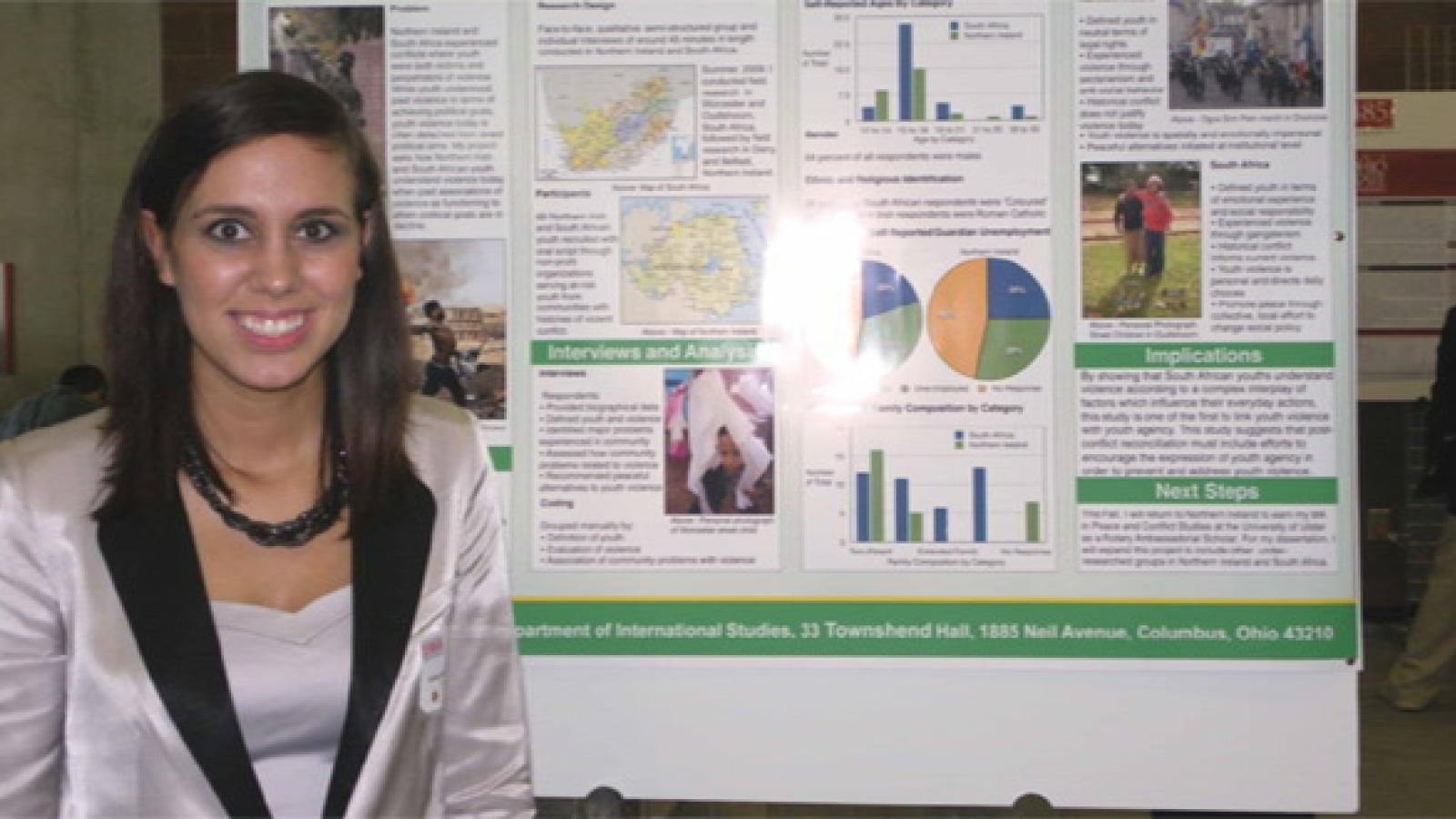Symbolic Associations of Violence in Northern Ireland and South Africa
Presenter: Elaine Householder African Studies
Advisor: Prof. Franco Barchiesi, African American & African Studies
The period of sectarian violence in Northern Ireland from 1969 to 1998 known as 'the Troubles' and the era of apartheid from 1948 to 1994 in South Africa were both characterized by violent sociopolitical conflict involving youth as active participants in paramilitary organizations and violent sociopolitical protest. While youth violence of the past was signified politically, persistent youth violence in these two nations is often regarded by scholars as purposeless, being attached to no direct political goals. So, what is the place of violence in the symbolic universe of postconflict youth? How do youth in South Africa and Northern Ireland experience and understand violence in their everyday lives? And how do their approaches to violence determine their abilities to function in society? To answer these questions, I have conducted qualitative, semi-structured interviews in both Northern Ireland and South Africa among seventy street children, gang members, and high school and college students. Respondents were asked to define themselves as youth, describe their understanding of justifications for violent behavior and experiences of violence in their communities, and propose solutions to address violence in their nations. In interpreting the results, I employed a conceptual framework of youth agency which argues that violence is part of the discursive processes through which youth position themselves in their communities as purposive actors. The comparative findings indicate that South African youth have a much more personal and nuanced understanding of both youth agency and violence than do Northern Irish youth, who regard violence in spatially and emotionally remote terms. By acknowledging that young people are purposive agents engaged in a process of interpreting and attaching significance to violence, my research aims to provide an innovative perspective to aid conflict resolution by empowering the subjects of violence with the capacity to become protagonists in its overcoming.

